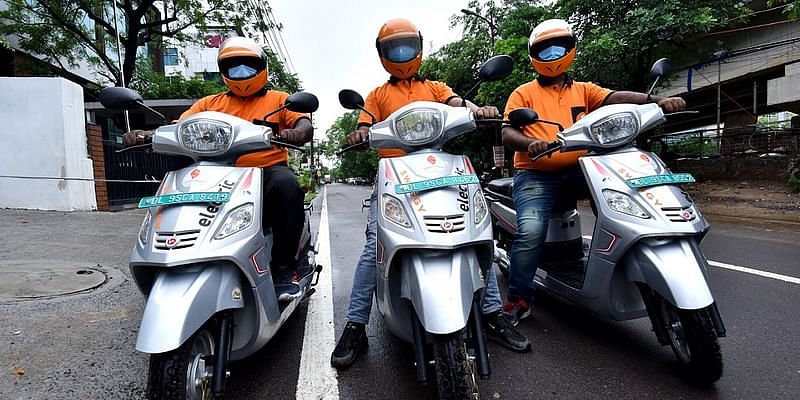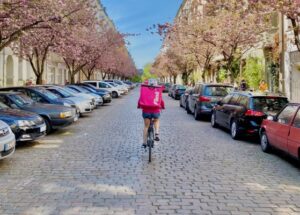Bengaluru-based foodtech startup has announced that it will cover deliveries of over eight lakh kms everyday through electric vehicles by 2025. The company today announced the commencement of trials that will increase the deployment of EVs in its delivery fleet.
A statement said Swiggy has signed an agreement with Reliance BP Mobility Limited (RBML) to build an EV ecosystem and battery-swapping stations for its delivery partners across the country. This partnership between two leading industry players aims to synergise their strengths of scale, reach, and technology in creating a greener and cost-effective solution for delivery fleets through innovative business models.
Swiggy has also partnered with Hero Lectro, a leading e-cycle manufacturer and Fast Despatch logistics, a leading last mile delivery player in the UK to enable end-to-end delivery of Swiggy orders through cargo e-cycles.
Swiggy CEO, Sriharsha Majety, said, “Business growth should go hand-in-hand with the interests of its stakeholders, the welfare of the community, and minimising the impact on the environment. Swiggy’s fleet delivers millions of orders each month with our partners traveling an average of 80-100kms daily. As we continue to work towards providing our consumers with greater convenience, we are also mindful of the environmental impact of our operations and are taking the necessary steps to make our journey more sustainable. Transitioning to EVs is an important step in this direction. It will have a positive impact not only on the environment but also empower our delivery partners to earn more.”
The trials are currently running in Bangalore, New Delhi and Hyderabad. Making deliveries through EVs is expected to lower the running cost of vehicles by up to 40 percent, leading to higher earnings for Swiggy’s delivery partners.
Commenting on the initiative, Shri Amitabh Kant, Chief Executive Officer of Niti Aayog, said,
“The Indian industry must continue to work towards driving the adoption of EVs as a part of the nation’s overall efforts to transition to sustainable and environment-friendly mobility. Swiggy’s commitment in this direction is a welcomed development. I urge other industry players to factor EVs in their business and operating models for a sustainable future.”
Today’s announcement comes on the back of almost two years of pilots, during which Swiggy explored various models to determine what would make EV adoption easier and more profitable for its delivery partners.
The company stated that to ensure a robust and sustainable last-mile food delivery infrastructure, Reliance BP Mobility Limited (RBML) will install battery swapping stations every few kilometres. A single pre-charged battery enables a commute of almost 65-80 kilometres.
Reliance BP Mobility Ltd (RBML) CEO, Mr Harish C. Mehta said “With an objective to support GoIs vision of Electric Mobility, RBML has forayed into e-mobility services and is committed to create an ecosystem which will help accelerate adoption of Electric Vehicles in the Country. Leveraging best of bp’s global learnings in electrification, RBML is setting up a robust and sustainable infrastructure comprising of EV charging hubs and Battery swapping stations offering digitally enabled services to all stakeholders. Our collaboration with Swiggy has the potential to bring disruption and increase EV adoption among delivery and transportation companies in the country. We are confident Swiggy and their Delivery partners will immensely benefit from our widespread network of Battery Swap stations.”
The battery swapping itself will take less than five minutes, ensuring lesser waiting time and more deliveries and earnings for the delivery partners. Swiggy will also train its delivery partners on how to use the EVs, swapping stations, and apps that monitor battery performance.
Swiggy is also working with Hero Lectro and Fast Despatch logistics to deploy electric cycles for last-mile deliveries. The pilot, currently live in Hyderabad, will expand to other metros in the coming months. Hero Lectro Cargo e-bikes are specifically designed for last mile deliveries and can travel at a maximum speed of 25 kmph with a range of 70-75 kms per charge- making them ideal for short-distance deliveries.



![Read more about the article [Funding alert] Rural tech startup Hesa raises $2M in seed round led by Venture Catalysts and 9Unicorns](https://blog.digitalsevaa.com/wp-content/uploads/2021/06/HesaTeam1-1619937507258-300x150.jpg)






